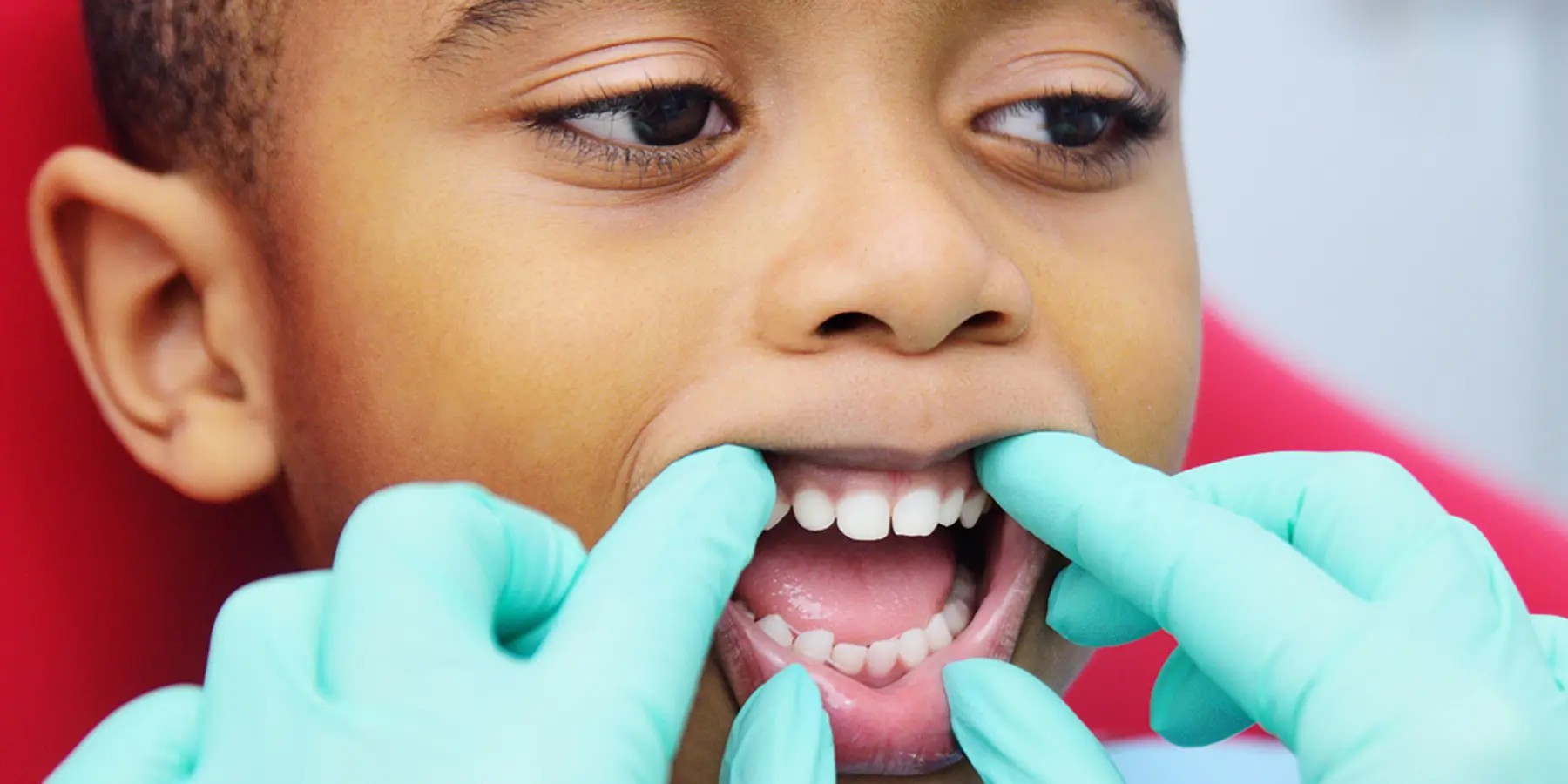
Little Teeth, Big Impact: Why Baby Teeth Matter More Than You Think
Reviewed by Dr. David Sentelle, DMD, PhD, MPH
Even though baby teeth eventually fall out, they serve an important purpose from the very start. They help children eat comfortably, speak clearly, and guide the growth of permanent teeth. Good care during these early years makes a big difference in lifelong oral health.
We care for growing smiles in Frisco, McKinney, and Prosper, TX with gentle, kid-focused dental care.
Table of Contents
The Role Baby Teeth Play in Early Development
Baby teeth support every part of your child’s growth, from how they talk to how their permanent teeth form. Keeping them healthy is essential for overall development.
- Help With Speech Development
Teeth support proper tongue placement and airflow for forming sounds. Missing or decayed baby teeth can make it harder for children to pronounce words correctly and delay speech development.
- Guide Jaw and Facial Growth
Each baby tooth helps guide jawbone growth and spacing for permanent teeth. When a baby tooth is lost too early, nearby teeth can drift, creating alignment problems that may require orthodontic correction later.
- Encourage Healthy Eating Habits
Healthy baby teeth make it easier for children to chew a range of foods, from fruits and vegetables to proteins and grains. When teeth hurt or are damaged, kids may avoid certain foods, which can affect nutrition and growth.
Common Myths About Baby Teeth
There are a few misconceptions about baby teeth that can lead parents to delay or skip early dental care. Here’s the truth behind some of the most common ones:
- Myth: You don’t need to fix baby teeth because they will fall out anyway.
Fact: Early tooth loss can affect speech, jaw growth, and alignment. - Myth: Cavities in baby teeth don’t need to be treated.
Fact: Cavities in baby teeth can progress quickly and may lead to infection, swelling, and significant pain. When decay reaches the inner part of the tooth, a dental abscess can form and spread to nearby tissues, which may cause serious facial swelling from bacterial infection. - Myth: Kids don’t need the dentist until all teeth come in.
Fact: The American Academy of Pediatric Dentistry recommends a first visit by age one or within six months of the first tooth appearing. Early visits help kids get used to going to the dentist.
| Early Dental Visits Build ConfidenceIntroducing your child to the dentist at a young age helps them feel comfortable in the dental chair. Regular visits create positive experiences, reduce anxiety, and build trust between your child and their dentist. |
How to Care for Baby Teeth
Strong habits start early. Here’s how to keep your child’s smile healthy from the start:
- Brush twice daily with a soft-bristled toothbrush and a smear of fluoride toothpaste (about the size of a grain of rice).
- Begin flossing once teeth touch.
- Limit sugary snacks and drinks between meals.
- Schedule regular dental checkups to monitor growth and spot early signs of decay.
Caring for baby teeth takes just a few daily steps, but these small habits make a big difference as your child grows.
Healthy Habits Start Early
Baby teeth are the foundation for lifelong oral health. Caring for them now prevents future problems and helps your child eat, speak, and smile comfortably.
To book an appointment at our pediatric dental office in Prosper, TX, call (469) 228-4402, request an appointment online, or visit us at 240 S. Preston Road, Suite 10 Prosper, TX 75078.
📍Other locations
Lonestar Kid’s Dentistry in Frisco, TX
Lonestar Kid’s Dentistry in McKinney, TX
FAQ
Most babies get their first tooth around 6 months of age, though timing varies. By age 3, most children have a full set of 20 baby teeth. Keeping your child’s teeth clean from the start helps prevent early tooth decay and promotes lifelong dental health.
Baby teeth usually begin to fall out around age 6 and continue until about age 12, making regular dental appointments important throughout childhood. These visits help track growth and protect healthy teeth as new permanent ones come in.
If a baby tooth falls out due to decay or injury, a space maintainer may be needed to keep surrounding teeth from shifting and blocking the path for permanent teeth.
